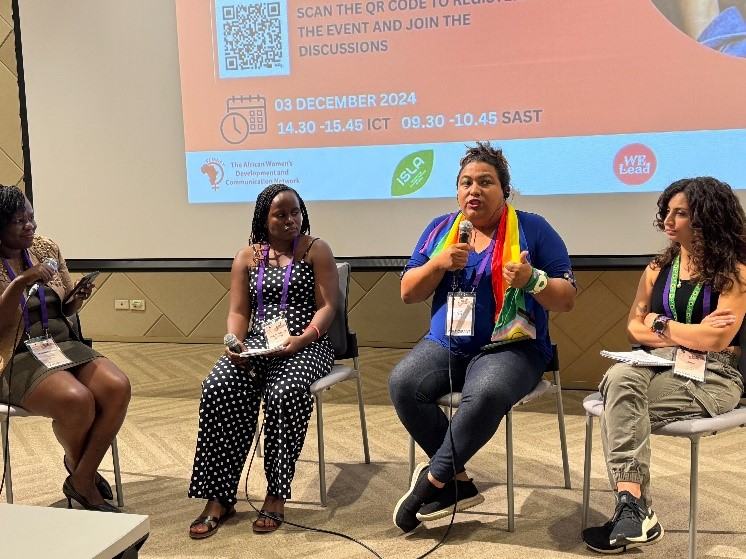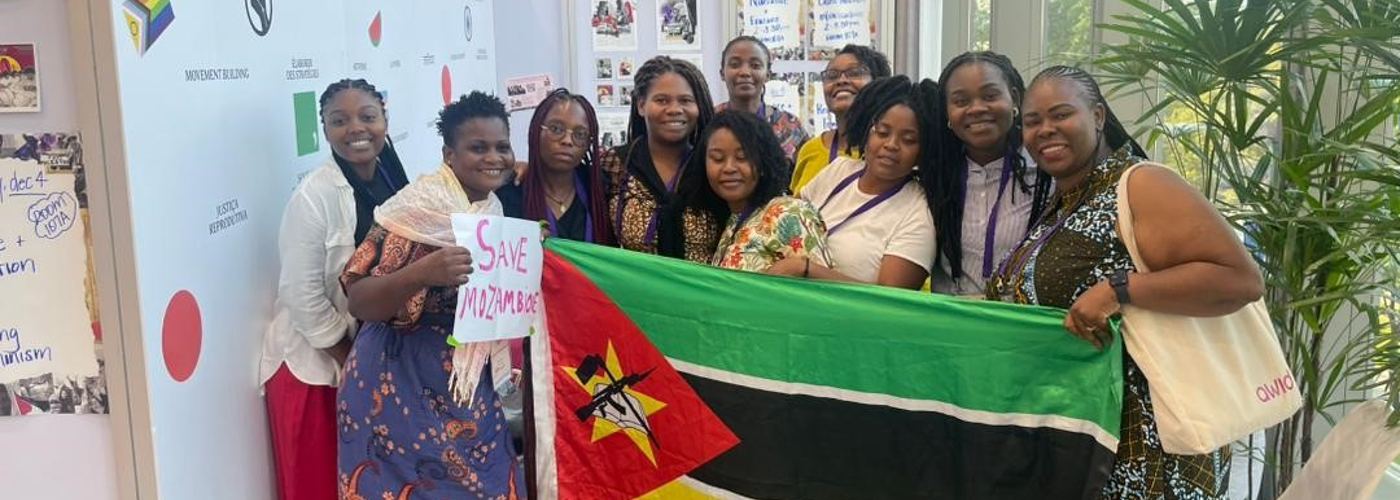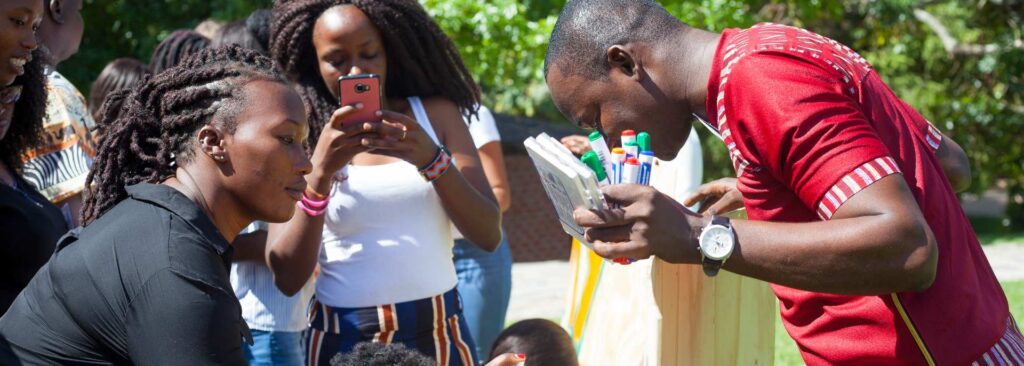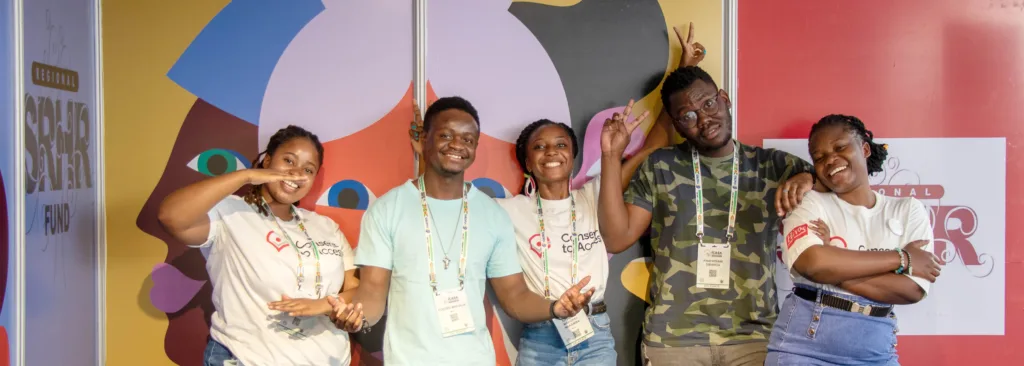At AWID International Forum 2024, Hivos participated in two sessions with teams from East and Southern Africa focusing on the anti-gender movement in Africa and the feminist voices against instability in Mozambique. AWID is a global conference bringing together activists, advocates, and feminists committed to advancing justice and equality. The forum provided an essential platform for African feminists to share their lived experiences, strategies for resistance, and calls for global solidarity.
Reclaiming SRHR: countering anti-rights movements
In the session “Rethinking and Reclaiming SRHR: Countering the Anti-Rights and Anti-Gender Movements in Africa,” FEMNET, Hivos, and the Institute of Strategic Litigation in Africa (ISLA) brought together African feminist leaders and allies. The conversation dissected the rise of well-funded and increasingly sophisticated anti-rights and anti-gender movements, which often co-opt human rights language to mask regressive agendas.
With anti-rights movements gaining momentum globally and particularly across Africa, the session provided a space to dissect these regressive forces and explore innovative strategies to counteract them. Speakers, including Emmah Wabuke, Nyambura Gathumbi, Tracy Asatsa, Nefer, and Zena, emphasized the urgency of reframing narratives to counter misinformation. Value-based communication strategies that align with diverse African contexts—where cultural and traditional values play a strong role—were identified as a key response.
The power of collaboration and grassroots advocacy
Collaboration and grassroots advocacy emerged as critical tools for defending SRHR. The session underscored the need for stronger partnerships across feminist and social justice movements and the importance of empowering youth-led initiatives. Programs like Hivos’ Regional SRHR Fund were celebrated for providing grants and capacity-building support to youth organizations, showcasing the pivotal role of young people in leading evidence-based advocacy.
Creative strategies were another focus. From cultural storytelling to digital literacy and exposing anti-rights funding sources, feminist advocates demonstrated the ingenuity required to navigate and dismantle oppressive systems.

Feminist resistance in Mozambique: voices against oppression
In the second session “Feminist Voices Against Instability in Mozambique,” Mozambican feminist activists from the We Lead program shared their fight against systemic violence, shrinking civic spaces, and international neglect. Mozambique faces a growing climate of militarization, police brutality, and authoritarian tactics, which stifle vital civic engagement.
The activists’ stories were both harrowing and inspiring, shedding light on the courage required to resist repression and amplify the voices of marginalized communities. Feminism in Mozambique, as they explained, is not just a theoretical framework but a lived, daily act of resistance. By fostering solidarity and challenging patriarchal systems, feminist movements have become a driving force for broader social justice.
Digital spaces as arenas for change
Both sessions highlighted the importance of technology and social media in feminist advocacy. Activists shared how platforms like Twitter, Facebook, and Instagram have become indispensable tools for documenting abuses, mobilizing communities, and reclaiming narratives often ignored by mainstream media. In an era where civic spaces are shrinking, digital platforms have become lifelines—dynamic arenas where feminists can engage, organize, and resist.
A call for global solidarity
Amidst these conversations, one message rang clear: solidarity knows no borders. Mozambican activists, alongside SRHR advocates from across Africa, issued a call for global allies to step up. The deafening silence of the international community toward struggles faced by Black African nations was a recurring concern.
The AWID International Forum created a space for reflection and action. It reminded attendees that feminist movements across Africa require not only recognition but meaningful, sustained support. Whether through funding grassroots initiatives, amplifying feminist narratives, or forming stronger global partnerships, the fight for equity and justice demands collective action.
From reclaiming SRHR to resisting systemic oppression, African feminist leaders demonstrated the resilience and creativity that define their movements. As grassroots advocates, youth leaders, and global allies stand together, the promise of transformation grows stronger. The fight for justice across Africa is far from over, but these fearless advocates continue to rise. Their voices, amplified by platforms like AWID, serve as beacons of hope and a reminder: the struggle for equity and freedom is shared, and solidarity remains our most powerful tool.




